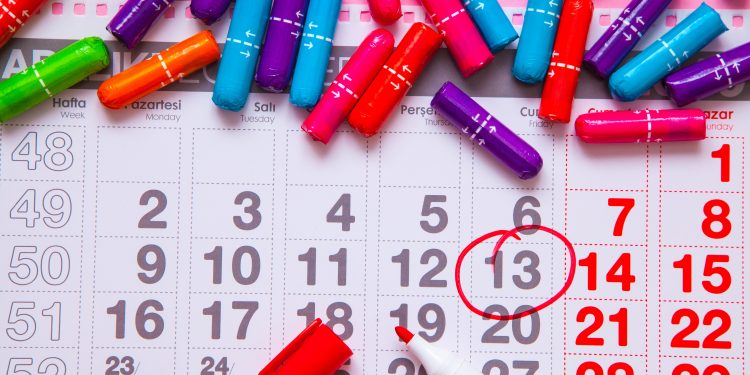Typically, the duration of a menstrual cycle is anything between 22 to 35 days starting from the first day of the period till the first day of the next cycle. Calling it or referring to it as a 28-day cycle is a misnomer because for someone 22 days can be normal while for someone 35 days can be considered normal. 5-7 days of variation is acceptable. This means that in case this variation is, let’s say more than eight days and this kind of irregularity is coming more than two- or three-times year, this would indicate that something within the body is abnormal, and we need to investigate.
The Gameplay
The entire game around periods is mainly played by 4 hormones, follicle-stimulating hormone (FSH), luteinizing hormone (LH), estrogen, and progesterone. FSH acts on the ovary to develop the eggs in the ovary, medically known as follicles. As the follicles grow, they produce estrogen, and the blood estrogen level rises. As the level of estrogen rises and reaches a critical level, the body then starts releasing a luteinizing hormone which pushes for ovulation.
Phases of Menstrual Cycle
So, a menstrual cycle has two main phases, the pre-ovulatory phase, and the post-ovulatory phase. The first phase of the menstrual cycle is variable, which means that due to certain reasons the eggs may take a long time to develop increasing the length of the pre-ovulatory phase. The second phase of the menstrual cycle is fixed. The post-ovulation is fixed, which is 14 days (about 2 weeks). So, the length of the menstrual cycle will depend upon the pre-ovulatory phase. Anything that disturbs ovulation will disturb the cycle.
Causes of Delayed Periods
All delayed or irregular periods are not always abnormal or signs of illnesses. There are certain physiological (natural) reasons for the irregularity that is experienced. There are certain times in a woman’s life when she can experience irregular periods, for example in the adolescent phase or teenage phase when she starts having her periods. You don’t have to worry during this time and the cycle will eventually become normal.
Another thing that can influence periods is pregnancy. When a woman is pregnant, she does not get her period. Even when she is feeding her baby, when she is lactating, she can experience irregular periods. Periods can also become naturally irregular when she is peri-menopausal, which means when the periods are about to stop.
Causes of Abnormal Periods
Any process that disturbs the ovulation or makes it irregular will make the periods irregular as well. The number one cause of irregular periods is a thyroid problem. The second cause can be excess secretion of the hormone prolactin because of malfunction in the pituitary gland in the brain.
The most common cause that can be seen in women these for irregular periods is PCOD (polycystic ovarian disease). This is a situation where the ovary produces tiny cysts which produce abnormal hormones, which leads to irregular periods. Another cause for irregular periods can be premature ovarian failure. This is a disturbing thing that has been happening of late and has become common.
In a normal female, the age of menopause is supposed to be after 38 years but any menopause which happens before the age of 38 is supposed to be premature menopause. These days we see women as young as 34 or 35 years going into menopause. This can be caused because of certain lifestyle factors. The most common cause is excessive weight gain or obesity.
Another reason for irregular periods could be any kind of physical or mental stress. Physical stress may include a history of serious illnesses or undergoing surgery. Excessive exercise is also not recommended by doctors. Exercise needs to be moderate; you do not have to go overboard.
Ways to Tackle Irregular Periods
The first and foremost suggestion is to get a check-up with your gynecologist. Needless to say, diet plays an especially vital role. What you eat, the portion you eat, how you eat it, the way you cook it, and most importantly when you eat it, everything plays a part. Eat the food the way nature has intended for us to eat it. It should be simple, freshly cooked, seasonal, and local. Try to avoid junk food, packaged food, and refined food. Try to avoid plastics as much as possible. Plastic containers contain a compound which is known as Xen estrogen which mimics the action of estrogen in the body.
Be physically active as much as possible and remember not to torture yourself. You just need to ingrain physical activity into your lifestyle. Also, you need to manage your stress. You must address the root cause of stress and start with small steps from the focal point. Have a good night of sleep at a scheduled time and keep yourself and your surroundings hygienic.











Discussion about this post